Reviews include 40 Acres, Jurassic World: Rebirth, and Sorry, Baby.
TFCA Friday: Week of November 8th, 2019
November 8, 2019
Welcome to TFCA Friday, a weekly round-up of film reviews and articles by TFCA critics.
Emerging Critic Award

The TFCA’s annual Emerging Critic Award is open for applications. With a $1,000 cash prize, this Award aims to elevate a new (or new-ish!) writer whose focus is critical perspectives on film. Read about this opportunity here.
Opening this Week
Dr. Sleep (dir. Mike Flanagan)
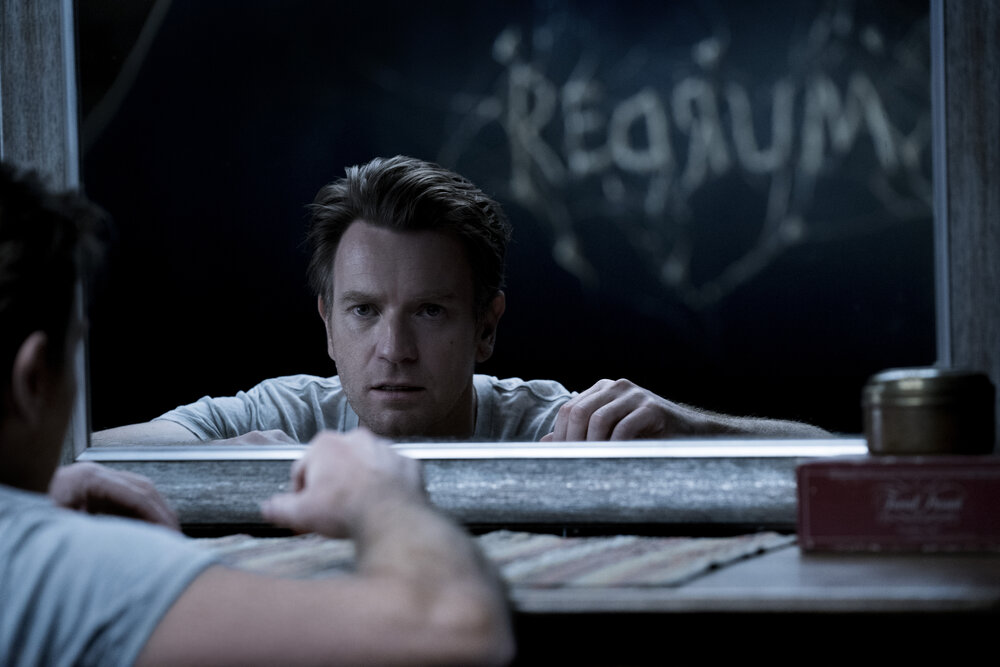
“Stitches together the narratives of King and Kubrick, in the hope that two fractured halves might make an agreeable whole. It doesn’t, not by a long shot, but it’s not for want of trying” — Peter Howell, The Toronto Star
“Pays enough homage to the original film, while still keeping things fresh, new, and even scary” — Gilbert Seah, Afro-Toronto
At That Shelf, Jason Gorber interviews director Mike Flanagan: “I’m not Kubrick, I’m never going to be, there’s no upside in even trying to be, so instead, I can pay tribute to Kubrick. I can love Kubrick with every shot of this movie”
Everybody’s Everything (dir. Sebastian Jones and Ramez Silyan)

At BeatRoute, Pat Mullen writes on the Lil’ Peep documentary that has its Toronto premiere at the Danforth Music Hall this week
Frankie (dir. Ira Sachs)
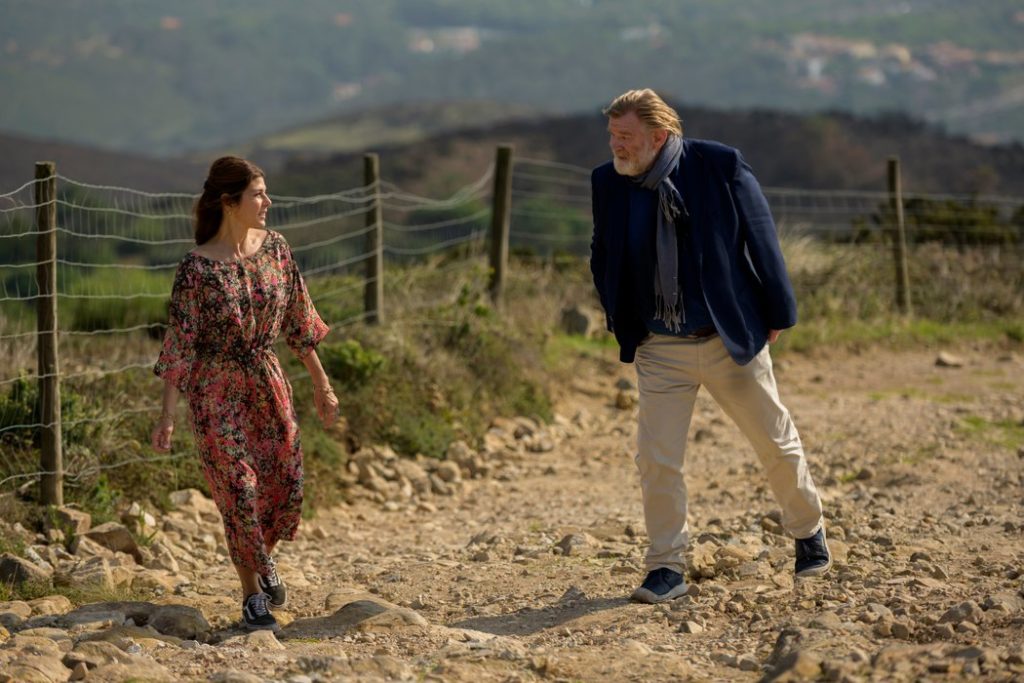
“Any film that wastes the great Isabelle Huppert is a crime, although [this] featherweight dramedy is really more of a misdemeanour” — Peter Howell, The Toronto Star
“If Eric Rohmer and Olivier Assayas spent an afternoon spitballing a family drama over coffee, they might have come up with something a lot like [this]” — Norm Wilner, NOW Magazine
“The backdrops of misty forest roads, old churches, and hillside steeples were shot by cinematographer Rui Pocas, who captures a quality of fairytale lightness, making Frankie better as a travelogue than a moving drama” — Liam Lacey, Original-Cin
“This dramedy could use some drama — and maybe some comedy” — Gilbert Seah, Afro-Toronto
“Sachs gets points for the film’s conclusion, a dialogue-free ten-minute finale shot mostly in a very wide angle over classical piano music; it feels like it was dropped in from a much more interesting movie” — Chris Knight, The National Post
At the Globe and Mail, Nathalie Atkinson talks to La Huppert and director Ira Sachs on the genesis of Frankie
The Irishman (dir. Martin Scorsese)
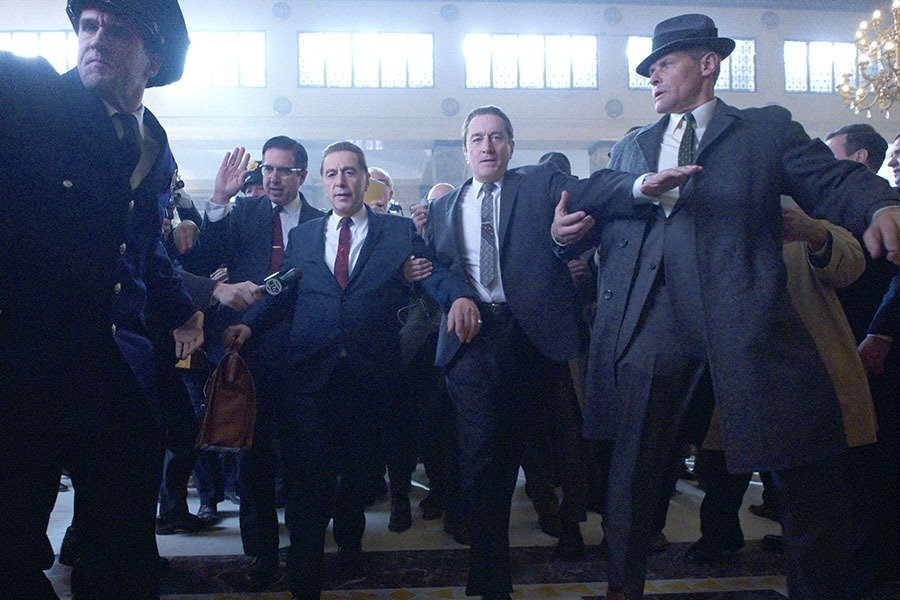
“The acid drip of expediency erodes a man’s soul in Martin Scorsese’s epic masterpiece, a distinctly American tragedy where fact seems like violent fantasy. There’s nothing unreal about the film’s quality. It’s a cinematic tour de force in form and substance” — Peter Howell, The Toronto Star, whose column also discusses Scorsese’s recent NYT op-ed
“It’s brilliantly cinematic, star-studded and features interesting and unexpected special effects, it’s complex, fascinating, historic in its execution and spans decades, a true story told with precision. It’s a treat and a challenge” — Anne Brodie, What She Said!
“Scorsese doesn’t dwell on the violence, and seems more interested in the possibility of redemption: a character who asks for a door to be left a little ajar is clearly speaking in metaphor, a language the Mob knows even better than Italian” — Chris Knight, The National Post
“There’s also a downside to having so many good actors wanting to be in a Scorsese film. Even more distracting than the “de-aging” effects, is a supporting cast full of “isn’t that?” moments, with actors that feel over-qualified for small roles” — Liam Lacey, Original-Cin
“A must-see crime drama, for Scorsese’s craft is still a master at his peak” — Gilbert Seah, Festival Reviews
In NOW Magazine, Radheyan Simonpillai also responses to Scorsese’s op-ed: “The Irishman is greatness. It’s the best kind of cinema. But is it even cinema?“
Last Christmas (dir. Paul Feig)

“[Given] the fact that anyone who goes to this movie knows exactly what they’re in for, I’m inclined to give it a marginal pass. Nobody could ever accuse Paul Feig of false advertising” — Peter Howell, The Toronto Star
“Has some funny bits that showcase screenwriter/co-star Emma Thompson’s early roots in sketch comedy but that twist? Ick” — Nathalie Atkinson, The Globe and Mail
Margaret Atwood: A Word After a Word After a Word is Power (dirs. Peter Raymont and Nancy Lang) 🇨🇦
“What she conveys here is a constant attentive energy and ready answers. Beyond that, her secrets are her own” — Liam Lacey, Original-Cin
“Has much to offer Atwood fans and neophytes alike. Co-directors Nancy Lang and Peter Raymont follow the storied writer from her birth in 1939 Ottawa through her fame with The Handmaid’s Tale – the 1985 novel, the recent television adaptation, and the appropriation of its symbols by protestors in the Trump/#TimesUp era” — Chris Knight, The National Post
Midway (dir. Roland Emmerich)
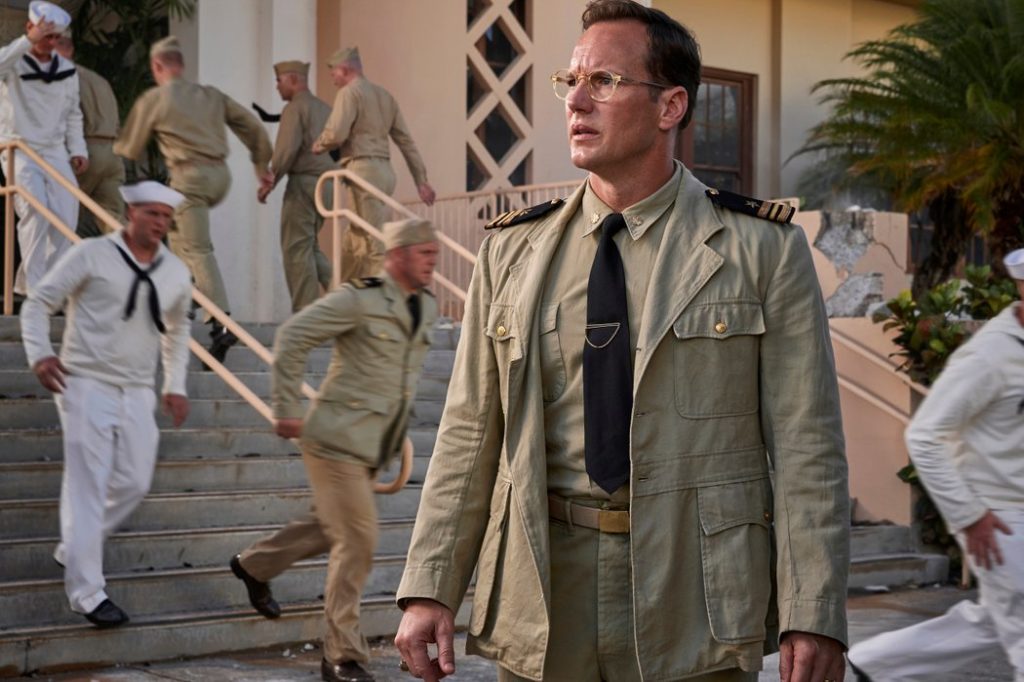
“Emmerich knows how to wring tension from combat scenes, whether with a torpedo that fails to explode, or a near miss in a bombing run. The carnage is visceral without being too bloody, resulting in a PG rating” — Chris Knight, The National Post
“Doesn’t get to the battle of Midway until almost two-thirds of the way through its bloated running time. But that’s the least of its problems” — Norm Wilner, NOW Magazine
“Emmerich’s compassionate take on the bruising event lacks none of the power of his action thrillers but stands out due to the basic, decent humanity at its core” — Anne Brodie, What She Said!
“Tell the story of a battle, offer up some sketched-out characters, played with aplomb, add a dash of soap opera and fire when ready” — Jim Slotek, Original-Cin
Playing With Fire (dir. Andy Fickman)
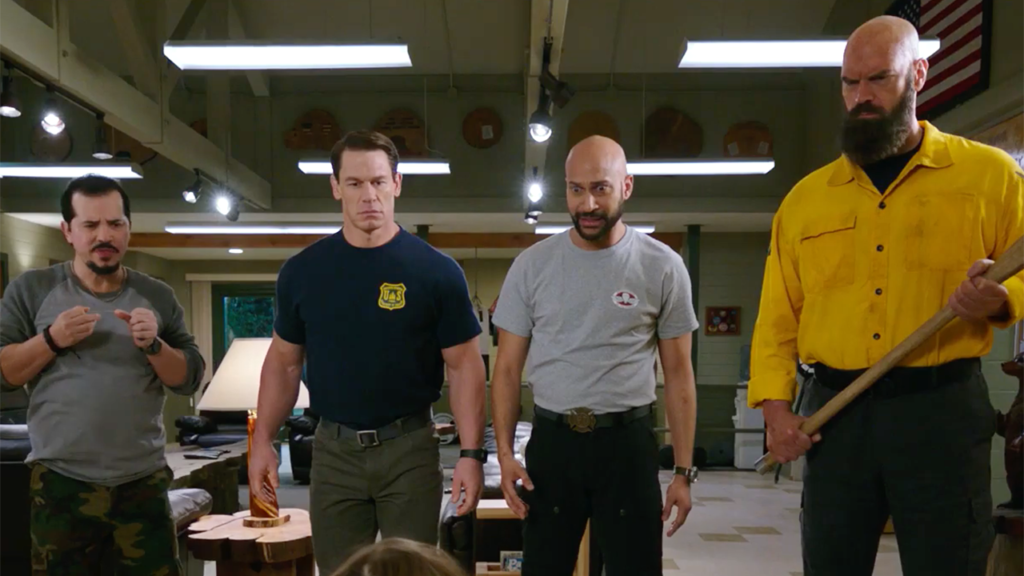
Reel Asian Film Festival

In this NOW Magazine cover story, Glenn Sumi profiles the festival and interviews filmmaker Yung Chang on his film Earth To Mouth
At Toronto Franco, Gilbert Seah has selected capsule reviews from films playing the fest
DOC NYC’s 10th Anniversary

To celebrate the occasion, POV Magazine’s Pat Mullen talks to DOC NYC’s (and TIFF programmer) Thom Powers on the decade of non-fiction




